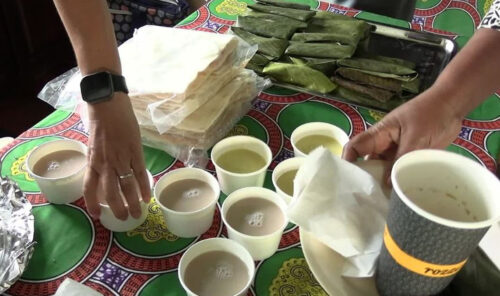Rolando Cocom, Director of ISCR-NICH
by Charles Gladden
BELMOPAN, Thurs. July 3, 2025
The Institute for Social and Cultural Research (ISCR), a division of the National Institute of Culture and History (NICH), began a three-day workshop, entitled ‘National Food Heritage’, which focuses on Belize’s unique culinary dishes, on Wednesday, July 2, at the University of Belize’s Conference Room in Belmopan.

The workshop was facilitated through an initiative of the United Nations Educational, Scientific, and Cultural Organization (UNESCO) that falls under the 2003 Convention for the Safeguarding of Intangible Cultural Heritage.
“It is born out of the response or the requests from communities themselves, who over the years have said to us that we should apply to this convention to be able to build national capacity and to be able to build what is called a national inventory,” said Rolando Cocom, Director of ISCR-NICH.
“Think about a store owner. They need to know what it is they have in store; and similarly, as a country, we need to know what it is that we have to offer our next generation when it comes to our living heritage, and in this case, to our rich Belizean cuisine. It’s a first step in also being able to carry out activities and spread awareness about the importance of traditional food in other areas of the country. It is a project that we believe is firmly rooted in many individuals and communities who have asked us to partner with them to amplify the work that they are doing,” he added.
According to Cocom, many traditional dishes in Belize’s culture are not well-known, because they are not receiving the wide exposure that other foreign dishes are.
“About two years ago, I learned about the Lancha, which is a food prepared mostly by our Maya communities of southern Belize; but because of where we live in the country, and because some of these traditional foods are not on the menus of restaurants, we don’t hear about them. There’s a lot of room for us to have more intercultural experiences with one another as a country,” he observed.
Zeidi Vellos, Coordinator at the Corozal House of Culture, emphasized the importance of passing down these traditions.
“We have a lot of traditions in many cultural groups, but unfortunately, it’s mostly done by elders, and the generations today are into technology. This plays an important role by bringing people together. It creates memories and grabbing the essence of each cultural dish that we have here in Belize,” she said.
Throughout the three-day workshop, discussions are taking place on what the 2003 Convention requires from the country, what traditional dishes are prominent and at risk, and how to document communities from which these dishes originated.

